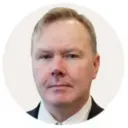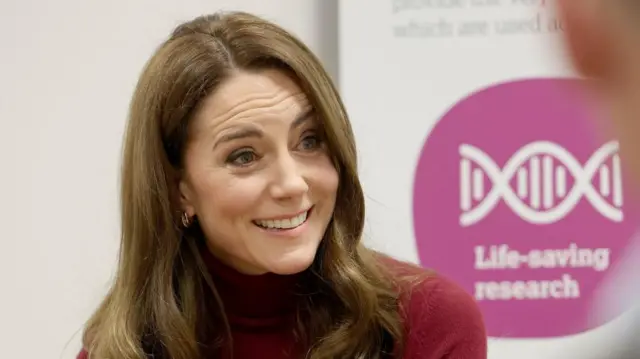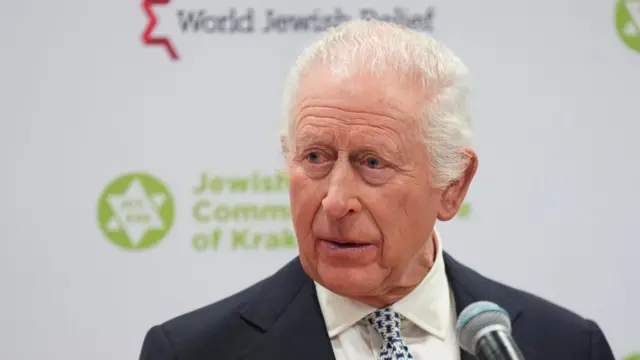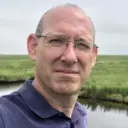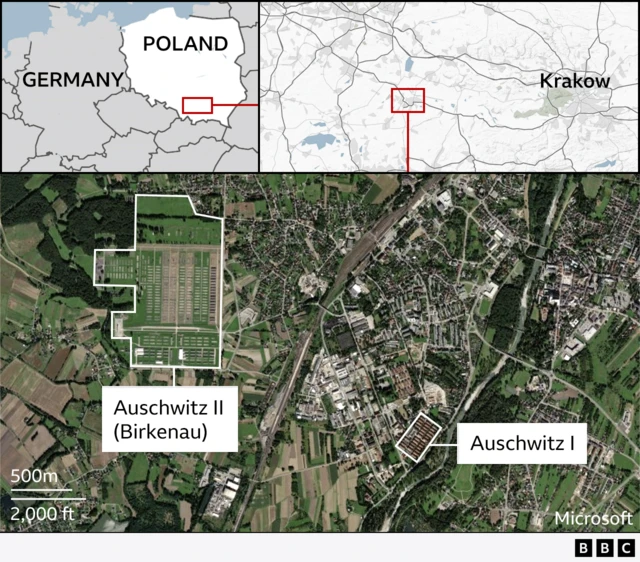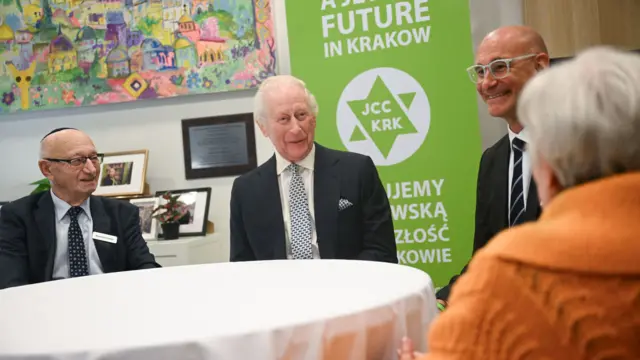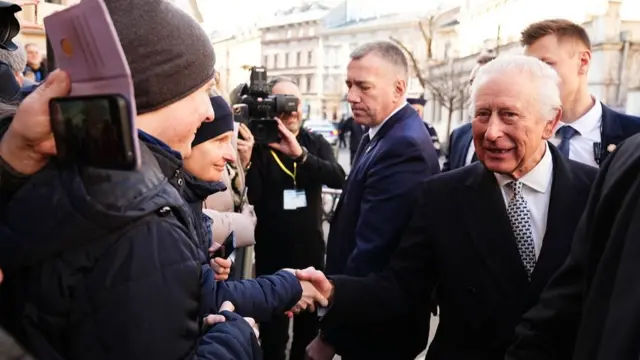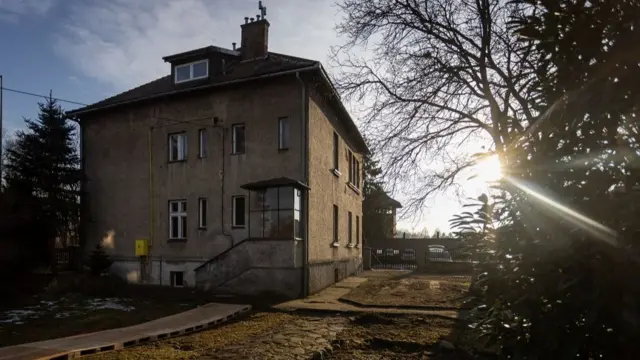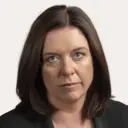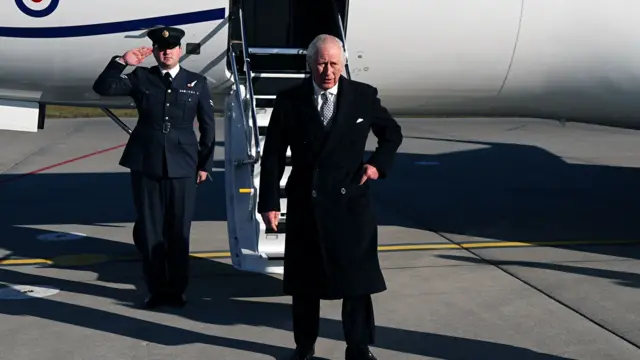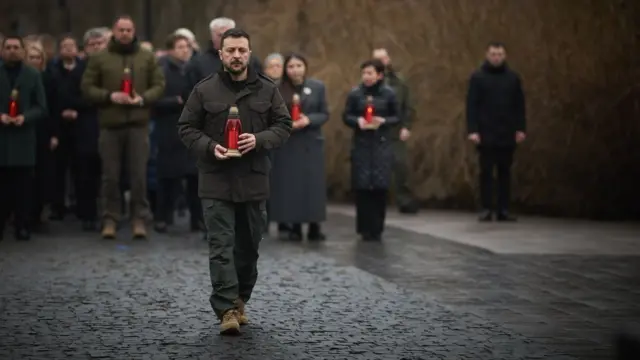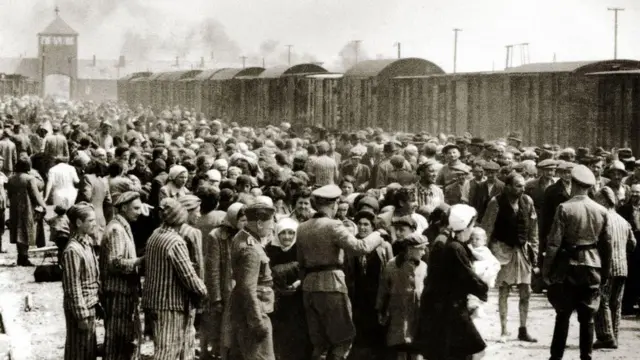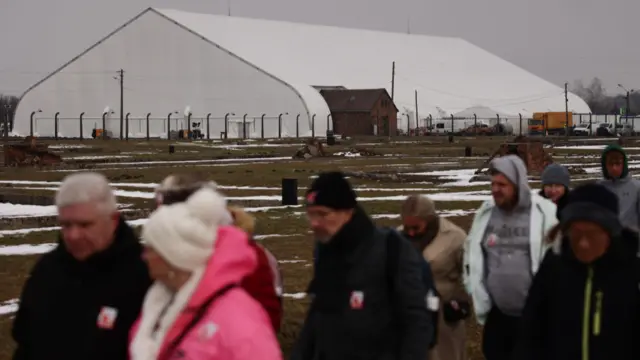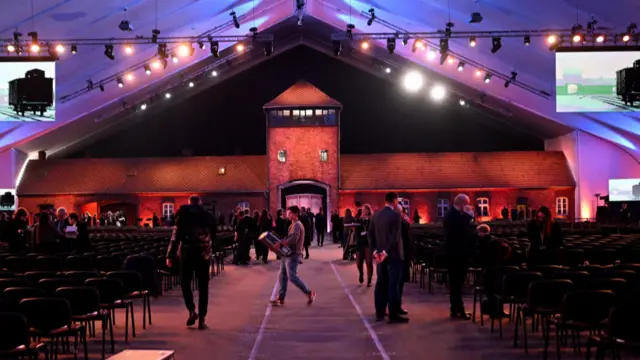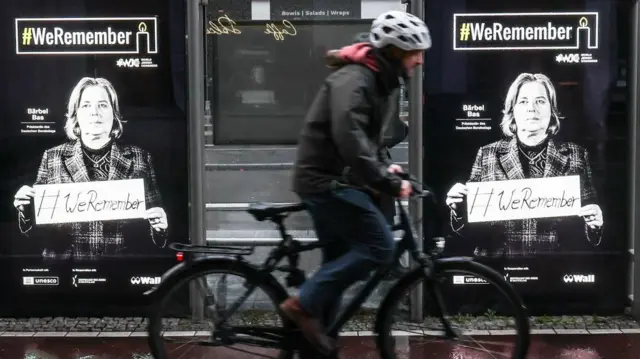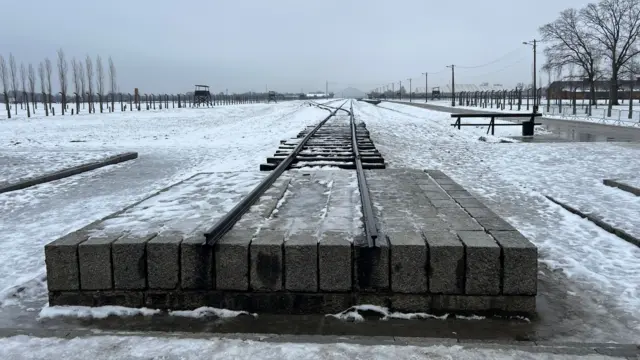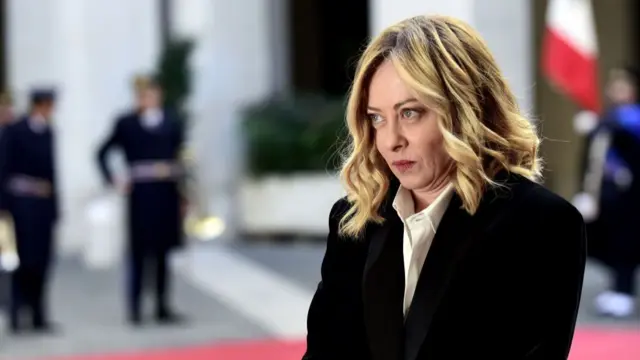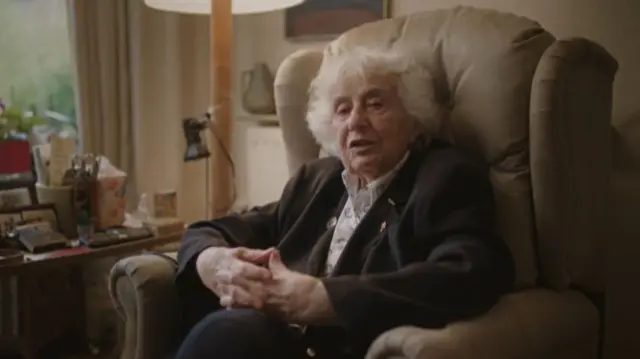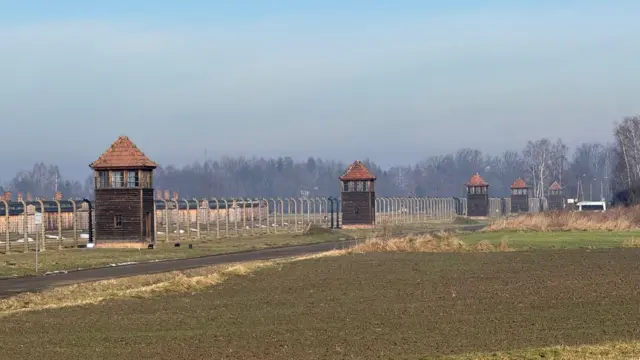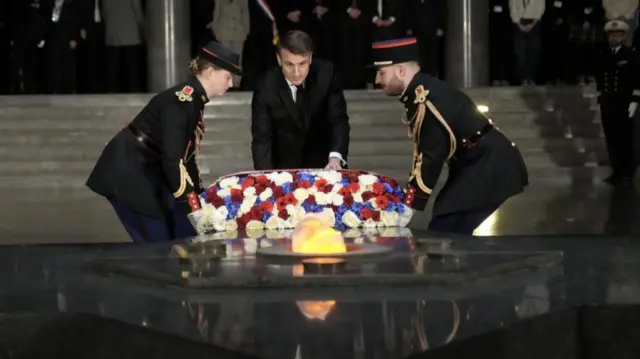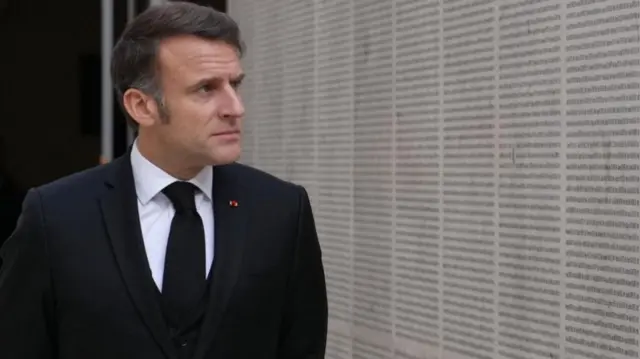Three generations of survivor's family warn against history repeating itselfpublished at 14:45 GMT 27 January
Katya Adler and Kathy Long
Reporting from Auschwitz
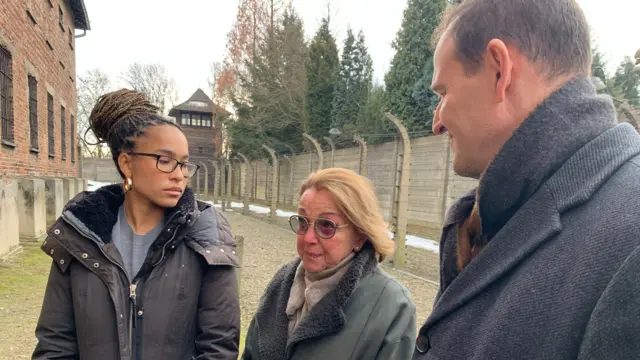
Holocaust survivor Eva Umlauf (centre), granddaughter Nadja (left) and son Erik (right)
Returning to Auschwitz is always an emotional moment for Eva Umlauf, who was just two-years-old when she was liberated. "I don’t know how it is possible for one human being to do this to another. It was so terrible," she says.
The dehumanisation of Jews by Germans meant they "did not think we were people… They thought we were rats. And rats must be poisoned - exterminated."
She says this anniversary is a warning because we live in "dangerous" times. “We have two wars, we have presidents who are dictators. We are afraid that history will repeat itself.”
Eva’s son Erik and granddaughter Nadja have travelled from New York to be with her at the ceremony.
Nadja, who hasn’t been here before, says there was a pit in her stomach when she arrived.
"Being here reminds me of the importance of sharing her story. I feel as a young person, a heightened sense of othering; across race, religion, all lines."
